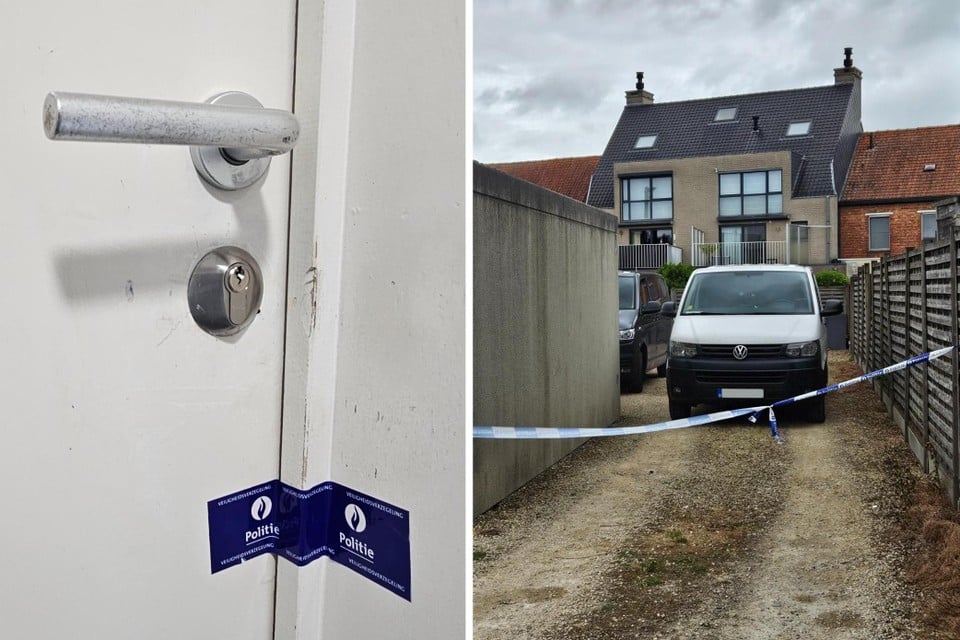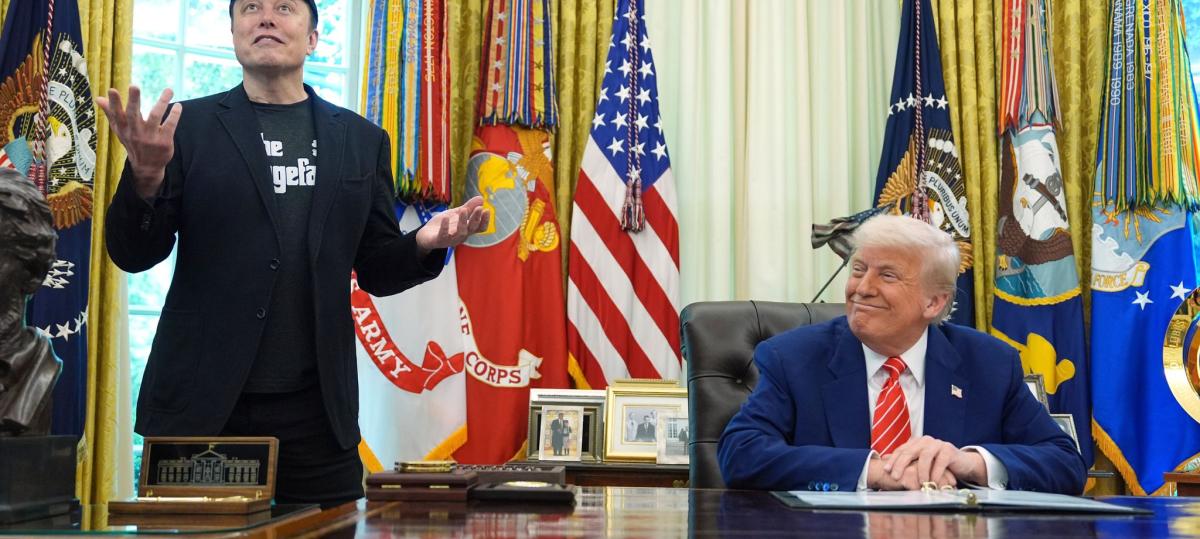Newest DNB estimates mainly show how uncertain the economy is now
/s3/static.nrc.nl/images/gn4/data133305331-966bd5.jpg)
It is a fixed ritual of De Nederlandsche Bank (DNB): every fall an estimate about the Dutch economy. And again at the beginning of June. With predictions about economic growth, inflation and the budget deficit.
DNB announced this Friday for this year to provide economic growth with 1.1 percent. For the two years later, she also expects a growth in the gross domestic product of around 1 percent. In the autumn estimate, a growth of 1.5 percent was assumed before 2025.
But what is such an estimate if the economic uncertainty in the world and in the Netherlands is as great as now, because of the trade war that is different every day?
According to Olaf Sleijpen, head monetary affairs and possibly one of the candidates to succeed Klaas Knot as president of the Central Bank, the economic scenarios presented this Friday are mainly intended to display that ‘great uncertainty’. Although he immediately adds that that uncertainty is no longer an exception. « In the five years that I present these estimates, there is something every time. The pandemic. The raid in Ukraine. »
If the trade war further escalates, the economic growth of the Netherlands drops back to the 0 percent
In order to display the current uncertainty through the trade war, DNB’s calculators presented two extra scenarios, where one alternative scenario was presented in normal times. The basic scenario is based on the now known rates. That means a basic tax from the United States of 10 percent for the whole world and 44 percent for China.
In a milder scenario, there is an agreement between the European Union and the US with mutual rates of 0 percent. According to the models, this produces a Dutch GDP growth of 1.2 percent this year and between 1.1 and 1.3 percent in the two years thereafter. If the Trade War further escalate, with high (counter) rates, the economic growth of the Netherlands drops back to 0 percent.
And then this time the falls of the Dutch cabinet are not even included in the estimates: the models and data on which the estimates are based are closed on 14 May. According to Sleijpen, the cabinet’s outgoing status will again « provide extra uncertainty. » « It is not good for investments from companies. And not good for consumption. »
According to Sleijpen, however, there are no figures on it yet. And he put the impact directly: « What happens geopolitics is much more important. We should not exaggerate the impact of the fall of the cabinet. If the negotiations between the US and EU are stuck and financial markets, that will have much more effect on the Dutch economy. »
Growth potential is hindered
Although it is ‘uncertainty’, Sleijpen thinks it is useful to present the estimates. According to him, they show where the structural problems of the Dutch economy are. He points out that whatever scenario there is truth, the Dutch economy is in any case under potential growth. According to DNB, it is 1.5 percent. « That is the maximum growth at the moment, above that you would be confronted with all on kicks, such as in labor and energy. »
The fact that this ‘not even very high’ growth is not achieved is due to a number of files in which no buttons are made: the stagnant housing market, the nitrogen file, the shortage of labor and the remaining (energy) infrastructure.
According to Sleijpen, the next cabinet should therefore give priority to the solution of those problems that hinder the growth potential of the Netherlands. « Our policy message is independent of what precise growth figures are coming out now. » But, he immediately adds: « Keep the public finances in order. With regard to budget deficit, it is really going to be sailed sharply in the wind now. That ensures that there is little room in the event of new calamities – as there was at the Coronapandemie. »
During the presentation of the figures on Friday morning in the new DNB building in Amsterdam, it was not at all about the other important knot by the cabinet: the appointment of the new DNB president. It must take over the keys to Knot on 1 July. It is said that this will not be taken on this on Friday during the Council of Ministers. The agenda is full, with the discussion about who will take over the ministerial posts that have been released by the departure of the PVV ministers.

/s3/static.nrc.nl/images/gn4/data133314127-765aec.jpg)
:format(webp)/s3/static.nrc.nl/wp-content/uploads/2025/06/05163439/data133217982-f902a2.jpg)
/s3/static.nrc.nl/wp-content/uploads/2025/06/06205808/web-0606BINspermadonatie.jpg)




